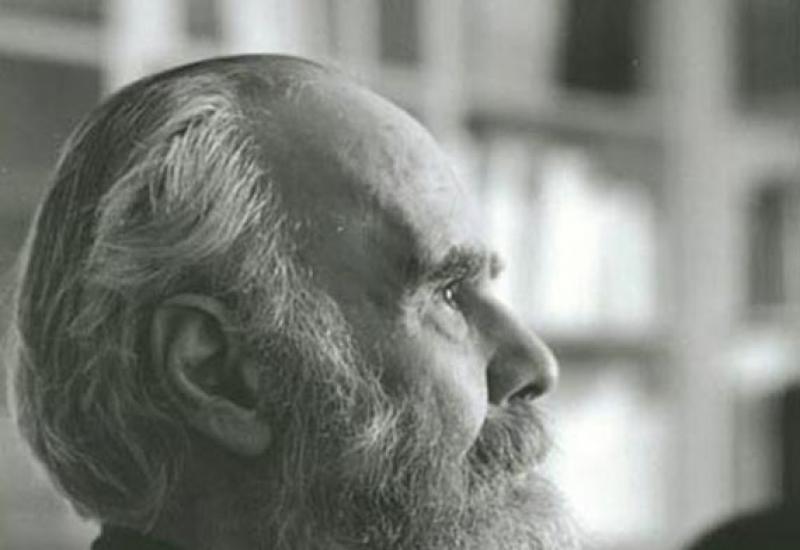He was the creator of the theory of communal or peasant socialism. Community (peasant) socialism. Russian socialism “A.I. Herzen"
Establish the correct correspondence between the names of organizations and the names of their participants:
1. “Northern Society”
2. “Black redistribution”
3. "Southern Society"
4. “Union of Struggle for the Liberation of the Working Class”
A. Pestel P.I.
B. Ryleev K. F.
V. Lenin V.I.
G. Plekhanov G. V.
D. Aksakov K. S.
Representatives of Russian social thought of 1840–1850, who idealized the past of Russia and believed that Russia should develop in an original way:
1. Westerners
2. Social Democrats
3. Slavophiles
Establish the correct sequence of activities of historical figures:
1. Gorchakov
2. Kutuzov
3. Nakhimov
5. Belinsky
The dates 1801, 1825, 1855, 1881, 1894 refer to:
1. Partitions of Poland
2. The beginning of the reign of the Russian emperors
3. Anti-French coalitions with Russian participation
4. Censuses of the population, mainly taxable
Indicate the incorrect position in the list of reasons that prompted Emperor Alexander II to carry out the reforms of 1860 - 1870:
1. The growth of peasant uprisings
2. Economic disadvantage of maintaining serfdom
3. Development of the liberal anti-serfdom movement
4. Pressure from leading European powers
The peasant reform of 1861 included:
1) abolition of the poll tax
2) abolition of mutual responsibility
3) legal capacity of peasants
4) abolition of landownership
1. Interest-free loan from the state for the purchase of peasant land
2. Abolition of class privileges of the nobility
3. Preservation of the community
4. Elimination of landownership
The peasant reform of 1861 includes the concepts
1. Temporary peasants
2. Redemption payments
3. Charter
4. Global mediators
The reform of 1861 freed peasants from serfdom. The peasantry herd personally free and:
1) Allotted land without redemption while maintaining landownership of the land
2) Allotted land with redemption while maintaining landownership of the land
3) Allotted land with redemption without retaining landownership
4) Another answer (your option)__________________________________________
Land was provided to peasants on the following terms:
1. For ransom with the assistance of the government
2. Entirely at the expense of the state treasury
3. Free
4. In the amounts that actually developed in the pre-reform period, taking into account the higher and lower norms for allocating land to peasants in a given area defined in legislative acts
Read in the same book: Historical features of Russia | The type of fleet that, according to current international practice, is | Did they know writing in Rus' before the adoption of Christianity: .... | The collapse of Kievan Rus into semi-independent principalities was called ..... | All-Russian Code of Laws, adopted in 1497... | In what year did Yaroslavl actually become the capital of the Russian state and at that time the militia of K. Minin and D. Pozharsky were located in it? | What were the main ideological trends in revolutionary populism in the 50s - 70s? XIX century? | The State Duma is | The main direction of the agrarian reform of P. A. Stolypin at the beginning of the twentieth century | The surname of the avant-garde artist, author of the famous “Black Square”... |mybiblioteka.su - 2015-2018. (0.005 sec.)
At the turn of the 40-50s of the XIX century. The theory of “Russian socialism” is being formed, the founder of which was A. I. Herzen. He outlined his main ideas in works written in 1849-1853: “The Russian People and Socialism”, “The Old World and Russia”, “Russia”, “On the Development of Revolutionary Ideas in Russia”, etc.
The turn of the 40-50s was a turning point in Herzen's social views. The defeat of the revolutions of 1848-1849. in Western. Europe made a deep impression on Herzen, giving rise to disbelief in European socialism and disappointment in it. Herzen painfully searched for a way out of the ideological impasse. Comparing the destinies of Russia and the West, he came to the conclusion that in the future socialism should establish itself in Russia, and its main “cell” will be the peasant land community. Peasant communal land ownership, the peasant idea of the right to land and secular self-government will, according to Herzen, be the basis for building a socialist society. This is how Herzen’s “Russian” socialism arose.
“Russian socialism” was based on the idea of an “original” path of development for Russia, which, bypassing capitalism, would come through the peasant community to socialism.
The objective conditions for the emergence of the idea of Russian socialism in Russia were the weak development of capitalism, the absence of a proletariat and the presence of a rural land community. Herzen’s desire to avoid the “ulcers of capitalism” that he saw in Western European countries was also important. “To preserve the community and liberate the individual, to extend rural and volost self-government to cities, to the state as a whole, while maintaining national unity, to develop private rights and preserve the indivisibility of the land - this is the main question of the revolution,” Herzen wrote.
These provisions of Herzen will subsequently be adopted by the populists. Essentially, “Russian socialism” is just a dream about socialism, because the implementation of its plans would lead in practice not to socialism, but to the most consistent solution of the tasks of the bourgeois-democratic transformation of Russia - this is the real meaning of “Russian socialism”. It was focused on the peasantry as its social base, therefore it also received the name “peasant socialism”. Its main goals were to free the peasants with their land without any ransom, eliminate landlord power and landownership, introduce peasant communal self-government independent of local authorities, and democratize the country. At the same time, “Russian socialism” fought, as it were, “on two fronts”: not only against the outdated feudal-serf system, but also against capitalism, contrasting it with the specifically Russian “socialist” path of development.
A.I. Herzen and the theory of communal socialism.
The creation of a domestic version of socialist theory is associated with the name of A.
I. Herzen. For participating in a student circle and singing songs with “vile and malicious” expressions addressed to the Tsar, A. Herzen and N. P. Ogarev were arrested and sent into exile. In the 30s and 40s, A. I. Herzen was engaged in literary activities. His works contained the idea of the struggle for personal freedom, protest against violence and tyranny. The police closely monitored his work. Realizing that it was impossible to enjoy freedom of speech in Russia, A. I. Herzen went abroad in 1847. In London in 1853, he founded the “Free Russian Printing House”, published 8 books in the collection “Polar Star” (on the title of which he placed a miniature of the profiles of 5 executed Decembrists), and organized, together with N., P. Ogarev, the publication of the first uncensored newspaper “The Bell” ( 1857-1867). Subsequent generations of revolutionaries saw the great merit of A. I. Herzen in creating a free Russian press abroad.
In his youth, A. I. Herzen shared many of the ideas of Westerners and recognized the unity of the historical development of Russia and Western Europe. However, close acquaintance with the European order, disappointment in the results of the revolutions of 1848-1849. convinced him that the historical experience of the West is not suitable for the Russian people. Therefore, he began searching for a fundamentally new, fair social system and created the theory of communal socialism. A. I. Herzen saw the ideal of social development in socialism, in which there would be no private property and exploitation. In his opinion, the Russian peasant is devoid of private property instincts and is accustomed to public ownership of land and its periodic redistribution. In the peasant community A.I. Herzen saw a ready-made cell of the socialist system. He concluded that the Russian peasant is ready for socialism and that in Russia there is no social basis for the development of capitalism. The question of the ways of transition to socialism was resolved by A. I. Herzen in a contradictory way. In some works he wrote about the possibility of a popular revolution, in others he condemned the violent method of changing the political system.
In general, the second quarter of the 19th century. was a time of “external slavery” and “internal liberation.” Some remained silent, frightened by government repression. Others insisted on maintaining autocracy and serfdom. Still others were actively looking for the navel of the country's renewal and improvement of its socio-political system. The main ideas and trends that emerged in the socio-political movement of the first half of the 19th century continued to develop with minor changes in the second half of the century.
Manifesto 02/19/1861 Abolition of serfdom (kp) in Russia.
Prerequisites for reform.
The agrarian-peasant issue has become the most pressing social issue. - a political problem in Russia by the mid-19th century. The checkpoint remained only in our country. It hampered economic and social-political development. The preservation of the Communist Party was due to the peculiarities of the Russian autocracy, which relied exclusively on the nobility, and therefore had to take into account its interests.
At the end of the 18th - mid-19th centuries. many statesmen and public figures understood that the Communist Party was disgracing Russia and relegating it to the category of backward states. However, the government's attempts to soften the Communist Code and give the landowners a positive example of how to manage the peasants turned out to be ineffective due to the resistance of the serf owners.
By the middle of the 19th century. the preconditions for the collapse of the serfdom system had finally matured. It has outlived its usefulness economically. Landowner farms, based on the labor of serfs, fell into decay (This worried the government, which was forced to spend huge amounts of money to support the landowners). The Communist Party interfered with the industrial modernization of the country, as it prevented the formation of a free labor market, the accumulation of capital invested in production, the increase in the purchasing power of the population and the development of trade.
The need to liquidate the Communist Party was also determined by the fact that the peasants openly protested against it and organized anti-serfdom popular protests. In the middle of the 19th century. The peasants' dissatisfaction with their situation was expressed in various forms: refusal to work in corvee and payment of quitrents, mass escapes (especially during the Crimean War), arson of landowners' estates, etc. The popular movement influenced the position of the government.
The defeat in the Crimean War became an important political prerequisite for the abolition of serfdom, as it demonstrated the backwardness and rottenness of the country's socio-political system.
Thus, the abolition of serfdom was determined by political, economic, social and moral prerequisites.
Preparation of reform.
For the first time, the emperor announced the need to free the peasants in a speech delivered in 1856 to representatives of the Moscow nobility.
Initially, projects for the emancipation of peasants were developed in the Secret Committee of Count Orlov, created in 1857. However, the dissatisfaction of the nobility, concerned about rumors about the possible abolition of serfdom, and the slowness of the Secret Committee led Alexander II to the need to establish a new body aimed at preparing the reform in conditions of greater publicity. He instructed Governor General V.I. Nazimov to appeal to the emperor with a request to create commissions to develop a reform project.
In February 1858, the Secret Committee was transformed into the Main Committee for Peasant Affairs. His task was to develop a common government line in the liberation of the peasants. The government allowed the discussion of reform projects and ordered the nobles to take the initiative in resolving the peasant issue. By placing the preparation of the reform in the hands of the landowners, the government, on the one hand, actually forced them to deal with this issue, and on the other hand, offered to ensure the maximum satisfaction of their interests.
In March 1859, Editorial Commissions were established under the Main Committee at the provincial and district levels. They were supposed to collect and summarize all projects developed by provincial committees.
By October 1860, the projects summarized by the commissions were submitted to the Main Committee and on February 19, 1861, the Manifesto on the abolition of the Communist Party was signed.
The Manifesto and the “Regulations” dealt with three main issues: the personal liberation of the peasants, the allocation of land to them and the redemption transaction.
Personal liberation.
The manifesto provided peasants with personal freedom and general civil rights. From now on, the peasant could own movable and immovable property, enter into transactions, and act as a legal entity. He was freed from the personal guardianship of the landowner, could, without his permission, get married, enter the service and educational institutions, change his place of residence, and join the class of burghers and merchants. The government began to create local self-government bodies for the liberated peasants.
At the same time, the personal freedom of the peasant was limited. First of all, this concerned the preservation of the community. Communal ownership of land, redistribution of plots, mutual responsibility (especially when paying taxes and performing state duties) slowed down the bourgeois evolution of the countryside. The peasants remained the only class that paid the poll tax, bore conscription duties and could be subjected to corporal punishment.
Allotments.
“Regulations” regulated the allocation of land to peasants. The peasant community managed this land jointly. All plots, except arable land. They divided it either according to “men and eaters”, or according to the egalitarian principle.
To maintain equalization, the plots changed every few years, since they consisted of different peoples of land. In each of them, the highest and lowest sizes of the peasant field allotment were established. Within these limits, a voluntary transaction between the peasant community and the landowner was concluded. Their relationship was finally consolidated by statutory charters.
When resolving the land issue, peasant plots were significantly reduced. If before the reform the peasant used an allotment that exceeded the highest norm in each zone, then this “surplus” was alienated in favor of the landowner. In the black earth zone, from 26 to 40% of the land was cut off, in the non-chernozem zone - 10%. In the country as a whole, peasants received 20% less land than they cultivated before the reform. This is how sections were formed, taken by the landowners from the peasants. Traditionally considering this land theirs, the peasants fought for its return until 1917.
When delimiting arable land, landowners sought to ensure that their land was wedged into peasant plots. This is how the striped land appeared, forcing the peasant to rent land according to the landlords, paying its value either in money or in field work.
Ransom.
When receiving land, peasants were obliged to pay its cost. The ransom was based on the size of the annual quitrent. The peasants had to pay such an amount, depositing it in the bank at 6% per annum, the nobleman, in the form of these%, could receive money equal to the annual quitrent.
The peasants did not have the money needed to buy the land. In order for the landowners to receive the redemption amounts in a lump sum, the state provided the peasants with a loan in the amount of 75% of the value of the plots; the remaining 25% was paid by the peasant community to the landowner itself. For 49 years, peasants had to repay the loan to the state in the form of redemption payments with an accrual of 6% per annum.
By 1906, the peasants achieved the abolition of redemption payments; they had already paid the state about 2 billion rubles, i.e. almost 4 times the real market value of the land in 1861.
The payment by the peasants to the landowner lasted for 20 years. All this time, the peasants were temporarily obliged: they had to pay quitrents and perform some duties until they completely bought out their allotment. Only in 1881 was a law issued to eliminate the temporary position of peasants.
Love for the Good sons of the nobles burned the heart in dreams,
And Herzen slept, not knowing about the evil...
But the Decembrists woke Herzen.
He didn't get enough sleep. It all went from there.
And, stunned by their daring act,
He raised a terrible ringing bell throughout the world.
What accidentally woke up Chernyshevsky,
Not knowing himself what he did.
And he, from sleep, having weak nerves,
He began to call Russia to the axe, -
What disturbed Zhelyabov’s sound sleep?
And he didn’t let Perovskaya get enough sleep.
And I immediately wanted to fight with someone,
Go among the people and not be afraid of the racks.
This is how conspiracy was born in Russia:
A big deal is lack of sleep for a long time.
The king was killed, but the world did not heal again.
Zhelyabov fell and fell into an unsweetened sleep.
But before that he prompted Plekhanov,
So that he goes a completely different way.
Everything could have worked out over time.
Russian life could be brought back into order...
What bitch woke up Lenin?
Who cares if the baby is sleeping?
There is no exact answer to that question.
We have been looking for him for years in vain...
Three components - three sources
They don't clarify anything for us here.
He began to look for the culprits - will there be any?
And being woken up terribly angry,
He immediately started a revolution for everyone,
So that no one escapes punishment.
And with a song they went to Golgotha under the banners
The fathers are behind him - like a sweet life...
May our half-asleep faces be forgiven,
We are the children of those who did not finish their sleep.
We want to sleep... And we can’t escape anywhere
From the thirst for sleep and the thirst to judge everyone...
Oh, Decembrists!.. Don’t wake up Herzen!..
You can't wake anyone up in Russia.
Community (peasant) socialism
The ideology of communal or peasant socialism is an exclusively Russian utopian project for the socialist reorganization of the country. The experience of the development of capitalism in leading European countries with its acute contradictions forced Russian revolutionary democrats to look for other ways of social development. Among them, the ideas of building a just society based on the peasant community, in which they saw a prototype of socialism, matured. The most famous developers of this project were Herzen, Chernyshevsky and Ogarev, whose views were not only utopian, but also anarchist.
Alexander Herzen
Russian revolutionary democrat, outstanding materialist philosopher, economist, writer Alexander Ivanovich Herzen (1812-1870) is considered, along with Belinsky, the forerunner of Russian Social Democracy. Herzen was born in Moscow on the very day when Napoleon entered it. He was the illegitimate son of a wealthy landowner I. A. Yakovlev and a German woman, Perkhoti Gaak, who lived with Herzen’s father all her life, but never became his legal wife.
In 1829, Herzen entered Moscow University, where his friendship with Nikolai Ogarev began, which lasted throughout his life. At the university, friends created a student revolutionary circle. In 1934, Herzen graduated from the physics and mathematics department of the university and plunged headlong into revolutionary activities.
In his works, especially in "Past and Thoughts" he recreated an entire historical era, analyzed the contemporary economic system of Russia and Western countries. He was arrested several times and sent away from Moscow (Perm, Vyatka, Novgorod). However, in 1842 he returned to Moscow and immediately found himself at the center of the revolutionary struggle.
Gradually, Herzen became one of the central figures in Russian social life of that era, which was facilitated by his brilliant abilities as a polemicist, colossal erudition, and talent as a thinker and artist. In 1838, he married Natalia Zakhar'ina, his cousin. Herzen's father did not give the young people any money until his grandchildren were born. Herzen loved his wife, they had four children.
In 1847, Herzen went abroad, and the period 1848-1952 became very difficult for him and his family. His wife fell in love with the German poet Herwegh, then his mother and son died tragically, then his wife also died. Herzen buried her in Nice, where he himself was later buried.
In 1853, in London, Herzen created the “Free Russian Printing House”, and subsequently the magazines “Polar Star” and “Bell”, which published sharp articles about tsarism and the serfdom system in Russia. The Russian government declared him a criminal and Herzen lived abroad for the rest of his life.
Herzen's economic views were an integral part of his revolutionary worldview. The focus of his attention was criticism of serfdom, the question of the economic and political conditions for its elimination. He sharply opposed the landowners' ownership of the peasant's personality and analyzed the essence and forms of exploitation. He considered serfdom to be the main reason for Russia's backwardness and advocated the liberation of the peasants from it.
The main problem of his anti-crisis concept was agrarian. At the first stage of reforms, he demanded that the land that was in their use be transferred to the peasants for ransom. However, over time, his views became more radical and revolutionary. He did not accept the peasant reform of 1861 and demanded the transfer of all land to the peasants without any redemption and the complete elimination of landownership. Realizing that the implementation of his program was possible only through revolutionary means, he acted as an ideologist of the peasant anti-Crisis revolution, criticizing at the same time the capitalist system.
In his writings, Herzen pointed out the acute contradictions between the wealth of the capitalists and the poverty of the masses, between “pauperism and the arrogant domination of money.” He saw the solution in the revolutionary replacement of capitalism with socialism. Herzen also criticized classical political economy, believing that it perpetuates the capitalist system.
Herzen created a theory of non-capitalist development of Russia, trying to justify socialism economically, which distinguished him from Western utopian socialists. He considered the Russian peasant community to be the embryo of socialism. In Herzen’s views, socialist ideas merged with democratic ones and were a form of his anti-Crisis program. To implement it, Herzen became one of the leaders of the underground organization “Land and Freedom”.
Nikolay Ogarev
One of the first ideologists of “peasant socialism” was the famous democratic revolutionary, economist, philosopher, publicist, post Nikolai Platonovich Ogarev (1813-1877). He was born into the family of a large landowner, studied at Moscow University, where he met and became friends with Herzen. His worldview was greatly influenced by the Decembrist uprising and the Great French Revolution. In 1834, Ogarev was arrested and exiled to Penza. In 1841-1847 he lived abroad, where he studied the philosophy of Hegel and Feuerbach and political economy. In 1856, he went to Great Britain, where, together with Herzen, he launched revolutionary journalistic and political activities.
Ogarev's views have evolved from ideas noble-revolutionary to peasant-revolutionary democracy. He developed an economic program for the peasant revolution, which was based on a sharp critique of serfdom. He substantiated the thesis that the serf system dooms the landowner economy to stagnation and degradation, does not allow the use of new technology and increasing labor productivity. The revolutionary democrat demanded the immediate liberation of the peasants from serfdom with the mandatory allocation of land and believed that these measures could be carried out peacefully. However, the wave of peasant uprisings and the half-hearted nature of the reform of 1861 overcame his liberal illusions. In progress "Consideration of the new serfdom" (1861) Ogarev sharply criticizes the peasant reform, and in labor "From where and where" (1862) substantiated the need to abolish landownership and called on the peasants to take possession of the land through revolutionary means.
Ogarev attached great importance to forms of land ownership. In the 40s, he considered farms with hired labor to be the most progressive. Later, he fully supported Herzen's idea of transferring all land into the ownership of peasant communities. He criticized Sismondi for idealizing small peasant farming, believing that this form of land ownership would lead the majority of peasants to ruin and poverty, as happened in France. He considered the community an alternative to the development of capitalism.
Using the example of Great Britain and other countries, Ogarev saw that capitalism, in addition to progress, brings mass poverty and ruin of the peasantry, and bourgeois democracy is of a formal nature. He considered capitalism to be a temporary form of social development, and considered socialism to be the ideal of social structure and became an ardent supporter of “Russian communal socialism.” Ogarev idealized the peasant community, considering it the seed of the future socialist development of Russia, and associated the transition to socialism with a democratic revolutionary revolution.
Nikolai Chernyshevsky Outstanding Russian revolutionary and thinker, writer, economist, philosopher Nikolai Gavrilovich Chernyshevsky (1828-1889) was born into the family of a priest, studied at the Saratov Theological Seminary, and then at St. Petersburg University, from which he graduated in 1850. His worldview as a revolutionary democrat was formed during his student years under the influence of the European events of 1848-1849, the ideas of classical political economy, utopian socialism, and the works of Belinsky and Herzen.
Chernyshevsky's revolutionary activities were devoted to the struggle against tsarism, krіposnitsy, propaganda of the ideas of socialism and peasant revolution. At the beginning of 1859, Chernyshevsky became the recognized leader of the revolutionary democratic movement in Russia, and his journal Sovremennik became the organ of revolutionary democracy. His works are published in the magazine "Anthropological principle in philosophy" (1860), "Capital and Labor" (1860), "Notes on J. S. Mill's Principles of Political Economy" (1860) and others.
Along with Herzen, Chernyshevsky became one of the founders of populism.
In 1862, Chernyshevsky was arrested and imprisoned in the Peter and Paul Fortress, where he wrote the novel "What to do?". Then he faced deportation to Siberia and hard labor. Only at the end of his life was he allowed to settle first in Astrakhan and then in Saratov.
The basis of his ideological concept was the principle of anthropological materialism. Based on the concepts of human nature, his desire for his own benefit, he draws revolutionary conclusions about the need to change social relations and forms of ownership.
Chernyshevsky recognized the objective nature of the laws of the historical process, the struggle between the new and the old, progress and reaction. He recognized the role of economic factors in history - the material needs of people, their significance of their labor activity, and was in search of an explanation of the patterns of social development in the material process of production. He noted the economic and political inequality in society, which gives rise to class contradictions and the revolutionary struggle of the oppressed for their liberation. Chernyshevsky believed that economic science should serve the revolutionary transformation of society and contrasted classical political economy with his own economic “theory of workers,” which justifies the need to replace the then economic system with a communist one.
He saw the cause of all the vices of life in Russia in kriposnytstvo, the contradictions of which he showed with exceptional depth. He proved that serfdom does not ensure an increase in labor productivity and production, and showed the fundamental difference between cession and capitalist rent. Chernyshevsky believed that the only progressive form of economy that could replace serfdom in Russia was a peasant economy free from landlord exploitation.
This position formed the basis theories of peasant revolution Chernyshevsky, the goal of which is the formation of a free independent peasant economy, and the means is the destruction of landownership and farming. He understood that the Russian economy had already taken the path of capitalist development, but argued that it could avoid the disaster of “proletarianism.” The revolutionary developed a socio-economic program, according to which the abolition of serfdom would not happen statement capitalist relations, and a gradual transition to socialism will begin.
Chernyshevsky recognized the relative progress of capitalism, which encourages a fairly rapid development of production, but harshly criticized it, especially for the crisis nature of development, seeing the anarchy of production and competition as the reason for this. He criticizes J. S. Mill, who argued for the possibility of improving the condition of workers under capitalist private property. The revolutionary saw the possibility of such an improvement only in the transition to a socialist system and created an original doctrine, according to which the starting point of the movement towards socialism is communal property, which should be supplemented by social production, which is based on the use of machine technology.
As a theorist of the peasant revolution, Chernyshevsky saw the decisive factors in the transition to socialism in changing land ownership relations. He was the immediate predecessor of the social democratic movement in Russia, his works prepared the ground for the further perception of Marx's theory by Russian revolutionaries.
Dmitry Pisarev
Outstanding representative of Russian revolutionary democracy, utopian socialist, publicist, literary critic Dmitry Ivanovich Pisarev (1840-1868) graduated from St. Petersburg University, worked in various magazines, in particular in 1861-1866 he was a leading critic and ideological leader of the Russian Word. Among Pisarev’s early articles, “Scholasticism of the 19th Century” (1862) stood out, directed against the ideology of serf owners and liberals. In the same year he was arrested and imprisoned in the Peter and Paul Fortress for 4 and a half years. It was there that he wrote his main works "Essays from the history of labor (1863), "Realists" (1864), "Historical Ideas of Auguste Conto" (1865).
Pisarev paid special attention to the analysis of economic issues. He considered the question of work and the situation of the working population to be the core of the study of economic problems. He argued that the only source of wealth is labor, and the cause of social conflicts is the appropriation of other people's labor. Considering the change in economic systems to be a natural process, he argued that the entire history of mankind was one change in the forms of slavery by others.
Pisarev attached great importance to Russia's economic problems. He argued that maintaining land relations would paralyze the development of productive forces and demanded the abolition of landownership. He saw that progress in Russia at that time could only be carried out in a capitalist form and said that to protest against the capitalist path “... would mean banging your head against the unshakable wall of natural law.” Pisarev advocated the development of capitalist industry, trade, railway communication, and the strengthening of the influence of science on production. Thus, he was a supporter of capitalist evolution in agriculture.
Unlike Chernyshevsky, Pisarev proposed transferring only their full plots to the peasants, and developing capitalist farming on other land. But he argued that the coming capitalism, since it had insurmountable contradictions, therefore developed the “theory of realism” - his own version of a revolutionary democratic and socialist program. He set the task of forming thinking realists and fighters for socialism. To do this, he proposed to carry out polytechnization of the school and organize widespread propaganda of natural science knowledge. In his views there was no idealization of the Russian community and the peasant as the bearer of socialist relations.
Pisarev recognized the decisive role of the masses in the revolution, but saw that in his contemporary Russia the peasantry was not ready for revolution. On this issue, a controversy arose between Pisarev and the Sovremennik magazine.
Nikolai Flerovsky (Wilhelm Bervy)
Representative of Russian utopian socialism, economist, sociologist, publicist Nikolay Flerovsky (Vilhelm Vilhelmovich Bervi) (1829-1918) studied law in Kazan, worked in the Ministry of Justice. For protests against some actions of Emperor Alexander II in 1862, he was arrested and was in exile until 1887. There he became close to the populist circle of "Chaikivts" and with their help published works "The situation of the working class in Russia" (1869) and "ABC of Social Sciences" (1871).
In 1873 he wrote a pamphlet-proclamation "How to live according to the law of nature and truth" in which he called for a social restructuring of society and preached a new religion of brotherhood and freedom. He actively collaborated with the democratic magazines "Delo", "Otechestvennye zapiski", "Knowledge", many of his works were banned by censorship. He sharply criticized the economic system of Russia; he considered the main reason for backwardness to be the remnants of serfdom, the dominance of landownership, the lack of land of the peasantry, and high taxes.
Recognizing the progressive nature of factory production, Flerovsky criticizes capitalist forms of exploitation, which. in his opinion, lead to extreme poverty of the country's population.
He believed that the situation could be changed by a social revolution, as a result of which the lands should be transferred to the use of peasant communities, and factories and factories should be transferred to the hands of artels. Such a revolution could occur either through a popular revolution or through reforms. Flerovsky considered the widespread dissemination of knowledge and education among the people to be an important condition for progress.
Vladimir Milyutin
Views of a publicist, economist, lawyer, professor of law, representative of socialist thought in Russia in the 19th century. Vladimir Alekseevich Milyutin (1826-1855) were formed under the influence of the ideas of Herzen and Belinsky. He took part in the work of the Petrashevtsy society. He published his economic works in the magazines Sovremennik and Otechestvennye zapiski.
Analyzing bourgeois society, he exposed the fictitiousness of bourgeois equality and freedom, substantiated the irreconcilability of class interests and asserted the need for a radical change in the social system. The future classless society, in his opinion, could be created by the state on the basis of the unification of small private property of producers. He was a supporter of petty-bourgeois socialism, defended the interests of the peasantry and became one of the developers of the concept of “community” socialism.
Milyutin made an attempt to understand the history of political economy from a democratic position and criticized the theories of Say and Malthus, which, in his opinion, turned a blind eye to the social ills of the people. Criticizing Western utopian socialists, Milyutin defended the progressive aspects of their teaching from the views of Russian reactionaries.
Please note that V.A. lived Milyutin is only 29 years old.
Nikolay Dobrolyubov
Outstanding literary critic and publicist, Russian revolutionary democrat, philosopher Nikolai Alexandrovich Dobrolyubov (1836-1861) lived an even shorter life - only 25 years - but an extremely productive and colorful life. He had a spiritual and pedagogical education, but became an outstanding revolutionary democrat. Already at the age of 19, he was published in the Sovremennik magazine and became, along with Chernyshevsky, its leader. During the years 1856-1861, he wrote several hundred articles, reviews, reviews, which revealed a huge influence on the development of advanced social thought in Russia and a number of European states.
Dobrolyubov’s economic views are close to the teachings of Chernyshevsky. He called political economy “the crown of all social sciences,” since it studies the foundations of relations between people. He criticized bourgeois political economy because it worries exclusively about the growth of capital and, in his opinion, protects the interests of the bourgeoisie and its wealth. He considered it necessary to create a new economic science, which should serve the interests of workers, which should be based on the doctrine of labor.
Dobrolyubov extremely sharply criticized the feudal-serf system of economy, which he called a “parasite” and a “spendthrift.” He considered serfdom to be the cause of Russia's backwardness, its exhaustion, the weak development of industry, trade, transport, the degradation of agriculture and the extreme impoverishment of the peasantry.
He demanded the abolition of landownership, the liberation of peasants from serfdom and the transfer of land to them without any redemption. In the works "Robert Owen and His Attempts at Public Works" (1859)", "From Moscow to Leipzig" (1859) Dobrolyubov analyzes the capitalist economic system and notes its relative progressiveness in relation to the feudal system of Russia. He welcomed the emergence of machine production, the replacement of dependent labor with civilian labor, and called for an industrial revolution in Russia, which would significantly change not only technology, but also the socio-economic relations of classes.
At the same time, he emphasized that the bourgeoisie did not destroy exploitation, but made it “more elegant.” Revealing the contradictions of capitalism, Dobrolyubov concludes that it is transitory, and therefore believed that Russia should not follow the capitalist path. He tried to find economic forms that would ensure the development of large-scale production, get rid of capitalist exploitation and significantly increase the well-being of the population. This form, in his opinion, should have been industrial agricultural associations organized in the pound of peasant communities, which should gradually supplant capitalist enterprises.
The development of such associations leads to socialism, which is possible after the people's revolution and the transfer of power to the working people. His thoughts regarding the “rights and responsibilities” of socialist labor and the growth of labor productivity are considered quite profound. Highly appreciating Owen's socialist ideas, Dobrolyubov saw their impracticability, since he did not resist the implementation of the revolution of the masses.
Dobrolyubov’s concept of Russia’s “easy” and “fast” path to socialism based on the peasant community was utopian, but it stirred up the development of socialist ideas.
In the late 40s and early 50s, Fonvizin diligently studied utopian socialism in order to “draw some conclusions regarding our Russia” (14, l. 3). The main conclusion he came to was that Russia, unlike Western Europe, could be transformed on a socialist basis, since communal land relations were preserved in it.
Initially, while working on the “Review of the Manifestations of Political Life in Russia,” Fonvizin saw in the Russian community only a kind of remnant of the ancient Russian community-veche, “democratic” structure, preserved in peasant social life. Therefore, in utopian socialism, at first he was mainly interested in the attitude of utopian socialists to the teachings of early Christianity: he even saw in utopian socialism a revival, a new triumph of early Christian ideals.
Informing Obolensky about his studies on “socialist and communist issues,” Fonvizin wrote in a letter dated May 15, 1851: “The writings of defenders of these systems are prohibited and do not reach us. But, considering these new teachings without prejudice, even according to the reports of their worst critics, the main idea of socialism and communism is identical with the duties of love for one’s neighbor and brotherly love prescribed by the Gospel. If among the followers of new political teachings there are also unbelievers, pantheists and skeptics, then shouldn’t we be amazed and in awe of the powerful power of the gracious word, which entices even its very opponents to speak and act in its spirit and unconsciously spread the gospel truths” (15, 199- 200).
To Obolensky’s objection that Christianity did not at all exhibit communist and socialist principles and that in ancient Israel the right of personal property was sanctified, Fonvizin replied: “... I, however, find it completely opposite... Read Chapter XXV in the book of Leviticus. Of all the legislators, Moses was the most radical in the communist sense and many millennia before us understood that land, like air and water, cannot be the unconditional, inalienable property of a person, but that all earthly creatures have a natural inalienable right to live on it, with your labor to earn food from her” (14, 202-203). In the same letter, Fonvizin assured Obolensky that “the first Christian church in Jerusalem was holy communism” (ibid., 203).
It should, however, be borne in mind that Fonvizin, polemicizing with Obolensky about the “true” teachings of Christianity, set out to limit the influence of the “Siberian congregation” among the Decembrists. The fact is that Obolensky not only resolutely opposed socialism, but also tried, based on the Bible and the history of the Christian church, to prove that the monarchy is the only form of government consistent with Christianity, and even expressed doubts about the need to abolish serfdom. In his letters, he assured that serfdom contributed to the preservation of the “simplicity” and “artlessness” of the “physical life” of Russian peasants and that therefore it “more disposed their hearts to accept grace” (62, 341).
Socialism, Fonvizin responded to this, rejecting all despotism, thereby revives the true “spirit” of Christianity; therefore, “socialist and communist teachings will not remain without consequences, but will bear the desired fruit” (ibid., 339). It is not surprising that he was interested in spreading these teachings in Russia. “They definitely say,” he wrote to A.F. Briggen in a letter dated March 28, 1850, “that socialist and communist doctrines have penetrated into Russia and have a large number of adherents... They assure that among Russian socialists there are people of every position - even young priests who studied in theological academies” (ibid., 337).
Thus, Fonvizin initially perceived utopian socialism within the framework of early Christian “love” and “brotherly love”; he did not yet connect it directly with the economic basis of society, but rather attributed it, in the words of Chernyshevsky, “to the so-called life of the heart.”
Only later, in 1852, while working on the article “On Communism and Socialism,” which comprehends Western European reality, Fonvizin carefully analyzed utopian socialism from the point of view of its applicability to the “present” situation of the proletariat. Criticizing the “methods” of transforming social life proposed by the utopian socialists, he was forced to reconsider his view of early Christian “communism.” Ultimately, he makes a number of significant amendments to his previous conclusions, in particular, he admits that the legislation of Moses was only a “limitation, and not the destruction of property rights,” that although the first Christian churches were “communist,” however, “the apostle himself no longer demanded that them renunciation of all property,” that, finally, communist ideals were not realized in Christian communities, and if individual sects managed to somehow organize their lives in accordance with these ideals, then sectarian “communism” is still not acceptable for civil societies .
Thus, returning in his article to the “holy communism” of the Jerusalem Church, Fonvizin now admitted that “in it, everything between Christian brothers was common not according to the code, but according to the spirit of love and self-sacrifice, of which only chosen, blessed souls or those who renounced are capable from the world, hermits who voluntarily imprisoned themselves within the monastery walls, and not a whole people” (14, fol. 8 vol.).
Elsewhere, discussing “well-ordered communism” in the society of the Moravian brothers, or Herrnhuters (Huterites), he again writes: “In the communities of the Moravian brothers there is no distinction of rank or class, and they are more like monastic communities than political unions , all their members are united by more religious than civil ties, and therefore their communist structure can hardly be applied to populous societies or states, in which too great inequality and heterogeneity of the constituent elements will always be an obstacle to this” (ibid., l. 10 volume - 11).
The result of this critical revision was that Fonvizin overcomes the partly religious-Christian understanding of the essence of utopian socialism and comes to the conclusion that “communist speculation” does not revive the gospel “truth”, but reflects in a new form the eternal antagonism “between rich and poor”, between oppressors and oppressed. He recognized the “similarity” of these arguments with the “political theory of the Athenian philosopher” (Plato) and considered the “socialist experiments” of Thomas More, Campanella, Mabley, Saint-Simon, Fourier, Owen, as well as “revolutionary theories” to be the later “renewals” of the idea of Plato’s Republic. "Robespierre, Babeuf and the "newest speculations" of Louis Blanc, Cabet, Considerant and Proudhon. At the same time, having rejected the possibility of using them in the West, Fonvizin nevertheless made an important discovery for himself: the communalism that communists and socialists strive for was preserved in real form in the system of land ownership of Russian peasants, and it is the Russian community that will protect Russia from “homelessness” and will allow it to be transformed on socialist principles.
So, at the end of the 40s, under the influence of the ideas of utopian socialism, Fonvizin thoroughly revised his initial understanding of the communal-volost structure of Ancient Rus': he saw in it not only a system of “democratic” representative government, as he had previously believed, but also the original Slavic form of land relationships. He believed that ancient Russian communal life had lost its state and political significance since Moscow centralization; As for the second moment that makes up this way of life - public ownership of land - then, despite serfdom, it was entirely preserved within the framework of the peasant “world”.
Let us consider in more detail Fonvizin’s judgments about the Russian community. “Having outlined my thoughts about socialism and communism,” he wrote, “I noticed that one of the main elements of these new speculations - public ownership of land - has existed since time immemorial in our Russia” (ibid., l. 16 vol.). This public ownership of land is expressed, according to Fonvizin, in the special nature of the distribution of peasant plots, which in both types of communities - free and landowners, existing in Russia, is the same and is carried out either taking into account the number of tax-paying souls, or by the amount of tax, or by seizures . The latter form of distribution is preserved only in those communities where there is an abundance of public land: each peasant of a given community enjoys the right to plow and mow a plot of such size that he “can cultivate it with his own strength” (ibid., l. 16 vol.).
“The second basic idea of communalism - the division of work between communities,” Fonvizin further noted, “is nowhere in such application as it is with us. The communal character that remained in Russia also had an impact on the division of industry. We have entire villages, and sometimes entire parishes and even counties, engaged in monotonous production. Such industries are revived either from local conveniences for their production, or from some favorable example... In a word, there are much fewer individual industries in Russia than communal ones, and therefore, although the degree of industrial development in our country is much lower than in other countries, the progress he completely agrees with the communal principle” (ibid., l. 18-18 vol.).
Fonvizin’s last remark regarding the influence of communal life on the nature of the development of Russian “industry” (trades) is noteworthy in two respects: firstly, it testifies to his passion for such forms of industrial production that are determined by the element of communal specialization, and therefore contribute to the preservation of the egalitarian principle distribution, and, secondly, allows us to concretely judge the means by which he intended to prevent the process of proletarianization of the rural population. Actually, Fonvizin in this case was guided by the same premise as Radishchev, Malinovsky, Pestel, namely the recognition of agriculture as the “most important wealth” of Russia. Therefore, he insisted that industry be directly determined by the specifics of community farming, and be, so to speak, its branch, distinguished and developed on the basis of community interests and benefits.
But Fonvizin did not see, and could not yet see, the other side of this fact - that the separation of crafts from the structure of the agricultural economy was the beginning of the destruction of the patriarchal rural community. He thought that the division of communal labor was only a necessary addition to the public ownership of land and that both of these points together were capable of transforming Russia on a socialist basis. However, in reality, the division of communal labor, V.I. Lenin pointed out, was precisely the basis of “the entire process of development of the commodity economy and capitalism” (4, 23).
An analysis of Fonvizin’s views on the Russian agricultural community convinces us that in their most important features they coincide with the theory of “Russian socialism” of Herzen. We have previously endeavored, as far as possible, to note some of the similarities and differences in their beliefs. And although Herzen was a supporter of the peasant revolution, and Fonvizin stood for a “limited” military revolution, both of them came (albeit in different ways) to the same assessment of the importance of the Russian community. To more clearly illustrate this conclusion, let us consider in the most general form the evolution of Herzen’s views on utopian socialism and rural communal life in Russia.
On March 24, 1844, Herzen, having familiarized himself with Gfrörer’s “History of the Christian Church,” wrote in his diary that in communism and socialism “the most important truths of Christian theodicy and Christian morality” are manifested; in our time, he noted, communism and socialism are in the same position as Christianity was originally in: “They are the forerunners of a new social world” (28, 160). Herzen is still convinced only that “renewal is inevitable,” but the way in which this renewal will take place was unknown to him, or rather, he believed that “actually, it doesn’t matter” whether it will be brought about by the inspired personality of one or by the inspiration of entire associations of propagandists... "(ibid., 161).
Herzen had not yet thought about the Russian community, or about any significance of “Slavic antiquities” in general; Moreover, he reproached the “Slav-rabid” for not understanding “European development.” “The Slavs,” he noted, “are probably called to many things in the future, but what have they done in the past with their steadfast Orthodoxy and alienation from everything human?” (ibid., 101). Consequently, the rejection of Slavic antiquities, the conviction that “Rus did not emerge from the bonds of family-patriarchal” (ibid., 157) - this is, perhaps, the main thing in which the difference between Herzen’s views and the views of Fonvizin, for whom the domestic antiquity has always served as an ideal prototype of the future Russia. This is confirmed by Herzen’s diary entry dated May 13, 1843. After a meeting with Baron Haxthausen, a famous researcher of rural institutions in Russia, who convinced him that the “important element” of Russian life, “preserved from ancient times,” is “community,” and advised “to develop it in accordance with the requirements of the time,” Herzen wrote: “But this is nonsense: if the attitude of the rural community towards the landowner changed with its size, with the amount of land or other living conditions, then it would be possible to understand some kind of norm. This is wrong. The state of the NN community depends on the fact that its landowner is rich or poor, serves or does not serve, lives in St. Petersburg or in the countryside, governs himself or as a clerk. This is precisely the pathetic and disorderly accident that suppresses development” (ibid., 92-93).
Only as a result of the spiritual drama experienced during the revolution of 1848 and the subsequent disappointment in the possibility of the imminent victory of socialism in the West, Herzen began to look for other ways to implement socialist principles. His gaze turns to Russia: “... people who have the misfortune of being so aware that the world around them is dying,” he wrote to Herwegh, “must involuntarily turn to a country that has no past, but has a huge future” (quoted from 60, 146).
In August 1849, he wrote the article “Russia”, where he first formulated the basic ideas of “Russian socialism”. Its content boils down to the following. The peoples of Western Europe, in the process of their historical development, “developed” positive social ideals. However, in practice they are further away from them than Russia, because the social life of the Russian people is similar to these ideals. “What is for the West,” wrote Herzen, “only a hope towards which its efforts are directed, is for us already a real fact from which we begin” (ibid., 147). Such a fact, in his opinion, is the rural community, which, however, needs certain changes and improvement, but nevertheless, even in its present form, represents the direct embodiment of the ideal principles of Western European socialist theories.
In the essay “On the Rural Community in Russia”, attached to the treatise “On the Development of Revolutionary Ideas in Russia” (1851), Herzen, characterizing Russian communal life, focused on the following points: firstly, the Russian rural community has existed since time immemorial and forms similar to it are found among all Slavic peoples; in the same place, “where it is not, it fell under German influence”; secondly, the land belonging to the community is distributed among its members, and each of them has the “inalienable right” to have as much land as any other member of the same community has; “this land is given to him for lifelong possession, he cannot and does not need to pass it on by inheritance”; thirdly, due to this form of land ownership, “the rural proletariat is an impossible thing,” and that if we also take into account, on the one hand, the obligation of every Russian, with the exception of city dwellers and noblemen, to be assigned to the community, and on the other, an extremely limited number urban residents in Russia, then “the impossibility of a large proletariat becomes obvious” (see 25, 508-510).
Herzen, who back in 1848 was completely convinced that practically Russia in relation to socialism at the moment is “impossible than Europe,” now, on the contrary, just as convincingly argued for the need to combine socialism with the Russian community, which, in his opinion, serves as a natural prerequisite “ socialist revolution." He wrote: “One powerful thought of the West, to which its entire long history adjoins, is able to fertilize the embryos dormant in the patriarchal Slavic life. The artel and the rural community, the division of profits and the division of fields, the secular gathering and the union of villages into volosts governing themselves - all these are the cornerstones on which the temple of our future free communal life is built. But these cornerstones are still stones... and without Western thought our future cathedral would remain with the same foundation.
This is the fate of everything truly social, it involuntarily leads to the mutual responsibility of peoples... Alienated, isolated, some remain with the wild communal life, others with the abstract thought of communism, which, like a Christian soul, floats over a decaying body” (30, 111).
Finally, bringing together the results of his reflections on the future of the Russian community, Herzen in the article “Russian Germans and German Russians” (1859) stated: “So, the elements introduced by the Russian peasant world are ancient elements, but are now coming to consciousness and meeting with the Western the desire for an economic revolution - consist of three principles, from:
1. everyone’s rights to land,
2. communal ownership of it,
3. worldly management.
On these principles, and only on them, the future Rus' can develop” (26, 300).
A comparison of the views of Fonvizin and Herzen shows that both of them, firstly, recognized the Russian agricultural community as a primordial national institution, which is the basis for the future transformation of Russia, secondly, they saw in it the practical embodiment of Western European socialist ideals and, thirdly, sought to to protect Russia from the emergence of a proletariat, i.e., in fact, from the bourgeois-capitalist path of development. All this not only confirms the validity of V.I. Lenin’s conclusion that “the Decembrists awakened Herzen” (5, 261), but also explains the reason why Herzen moved from Decembrism to the theory of socialism. His path could not have been different, for, as Fonvizin’s example convinces, the evolution of the Pestel movement in Decembrism took place in the same direction.
However, the similarity of views of Fonvizin and Herzen on the practical role of the Russian community does not mean that they understood its historical purpose in the same way. We have seen that Herzen recognized the need to unite the patriarchal rural community with Western European socialism, so that this community would become the real basis of socialist transformation; otherwise, he argued, Russia could remain with only one foundation of free communal life. This union itself was for Herzen nothing more than the introduction of a European revolutionary element into Russian communal relations. “The community is the child of the earth,” he wrote, “it lulls a person, appropriates his independence, but is itself unable to either protect itself from tyranny or free its people; in order to survive, it must go through a revolution” (25, 411). In other words, for Herzen, the spread of socialist ideals was necessary primarily for the revolutionization of the Russian peasantry.
Fonvizin believed that it was the revolutionization of the peasantry that would lead to the destruction of communal land ownership in Russia and give rise to the proletariat. Therefore, he advocated for the preservation of peasant communal life, in which he saw the embodiment of the ideal aspirations of utopian socialism. Fonvizin was convinced that “the Russian people are called upon from their native elements to develop a new world idea” (14, 15 vol.). In his opinion, this “world idea” - socialism - will unite all Slavic tribes around Russia and strengthen their dominant role in historical development. “Perhaps,” he wrote, “the so-called Pan-Slavism, which the Germans and French speak of with such disdain, is not a product of fantasy and not an empty dream, as many of them claim. Europeans have a presentiment of the ever-increasing gigantic power of our fatherland, they fear it, and that is why they dislike it. The far-sighted among them know the strength and durability of Russia” (ibid., l. 16).
Are we not, in the person of Fonvizin, confronted with a thinker who tried to develop the concept of “Russian socialism” on a Slavophile basis?
This question is not without foundation, since the nature of Fonvizin’s sociological generalizations resembles the way of thinking of the Slavophiles. However, Fonvizin’s “Slavophilism” differs qualitatively in its content from the Slavophilism of Moscow thinkers of the 40-50s of the 19th century. The Slavophiles developed and preached the view that the Russian community received its real content and significance thanks to the “whole speculation of the holy fathers of the church” that it received. To Orthodoxy, they argued, the community owes the development of a certain moral physiognomy, in particular, a correct understanding of the symbol of “brotherhood.” “This concept,” wrote A. S. Khomyakov, “this feeling is nurtured and strengthened only in Orthodoxy... That is why the zemstvo community could not maintain its rights outside the Orthodox lands...” (quoted from: 60, 220).
For the most part, Slavophiles, believing that Christianity introduced “consciousness and freedom” into the national life of the Russian people and thus made this life “as if the secular, historical side of the church,” saw their task in promoting a more complete enlightenment of the “national communal began as a community church" (see 57, 64). In other words, they took on purely missionary, church-educational work and, focusing exclusively on Orthodoxy, naturally stood in the position of orthodox rejection of all other variants of Christian doctrine, especially Catholicism.
As for Fonvizin, firstly, he was absolutely alien to the desire to dissolve the Russian community in Orthodoxy.
Secondly, he did not at all believe that the Russian community acquired its true content as a result of merging with the church community, for he viewed the church itself only as a historically failed attempt to organize itself on communal principles. Thirdly, not recognizing the “external”, official church, he rejected the claims of both Catholicism and Orthodoxy to universal significance.
Finally, Fonvizin, declaring communal life a “purely Slavic element” and understanding the latter exclusively as public land ownership and political “rule of the people”, identical to the basic ideals of the socialist teachings of the West, thereby proclaimed socialism as the new world idea that the Russian people are called upon to develop.
Although the Slavophiles also identified the beginning of community as a distinctive feature and the main advantage of Russian national life, but, comprehending this community from a Christian point of view, moreover, considering it a predominantly moral and religious phenomenon, they actually preached the idea of “pure” Christianity, in general the idea of Christian church “brotherhood”, which, in their opinion, has been preserved in its entirety and scope only by the Russian people and which they are called upon to proclaim to the rest of the world.
Taking into account the above, it can be argued that Fonvizin generally supported the desire of the Slavophiles of the 40-50s to revive pan-Slavic unity on a nationally unique basis, therefore he idealized the “root principle” of the Slavic world - communalism. But he decisively disagreed with them in his view of the very essence of the Slavic-Russian community, considering it the economic basis of true democracy and socialism.
G.V. Plekhanov, characterizing the sociological views of Belinsky and Herzen, noted: “The fact that the advanced Russian people of the 40s could not become the founders of scientific socialism is sufficiently explained by the economic backwardness of Russia and their incomplete acquaintance with the economy of the West. But the fact that these people came to realize the unsatisfactory nature of utopian socialism testifies to their outstanding talent” (53, 733).
These words can equally be attributed to the Decembrist M.A. Fonvizin.
It is interesting to compare Fonvizin’s judgments about the “communism” of the Huterites with the opinion on the same subject of P. L. Lavrov, who wrote: “The example of the Moravian brothers... serves for us as the best indicator of what humanity would have come to if attempts at heretical-Christian socialism could come true in life; in most cases they would create a vast monastery, like those created by the Catholic Church, and would, perhaps, slow down mental progress for a long time, without improving at all the material situation of the masses; would strengthen the theological element in the social system, and at the same time would strengthen the disastrous consequences that its predominance brings with it” (46, 153).
The creation of a domestic version of socialist theory is associated with the name of A. I. Herzen. For participating in a student circle and singing songs with “vile and malicious” expressions addressed to the Tsar, A. Herzen and N. P. Ogarev were arrested and sent into exile. In the 30s and 40s, A.I. Herzen was engaged in literary activities. His works contained the idea of the struggle for personal freedom, protest against violence and tyranny. The police closely monitored his work. Realizing that it was impossible to enjoy freedom of speech in Russia, A. I. Herzen went abroad in 1847. In London in 1853, he founded the “Free Russian Printing House”, published 8 books in the collection “Polar Star” (on the title of which he placed a miniature of the profiles of 5 executed Decembrists), and organized, together with N., P. Ogarev, the publication of the first uncensored newspaper “The Bell” ( 1857-1867). Subsequent generations of revolutionaries saw the great merit of A. I. Herzen in creating a free Russian press abroad.
In his youth, A. I. Herzen shared many of the ideas of Westerners and recognized the unity of the historical development of Russia and Western Europe. However, close acquaintance with the European order, disappointment in the results of the revolutions of 1848-1849. convinced him that the historical experience of the West is not suitable for the Russian people. Therefore, he began searching for a fundamentally new, fair social system and created the theory of communal socialism. A. I. Herzen saw the ideal of social development in socialism, in which there would be no private property and exploitation. In his opinion, the Russian peasant is devoid of private property instincts and is accustomed to public ownership of land and its periodic redistribution. In the peasant community A.I. Herzen saw a ready-made cell of the socialist system. He concluded that the Russian peasant is ready for socialism and that in Russia there is no social basis for the development of capitalism. The question of the ways of transition to socialism was resolved by A. I. Herzen in a contradictory way. In some works he wrote about the possibility of a popular revolution, in others he condemned the violent method of changing the political system.
In general, the second quarter of the 19th century. was a time of “external slavery” and “internal liberation.” Some remained silent, frightened by government repression. Others insisted on maintaining autocracy and serfdom. Still others were actively looking for the navel of the country's renewal and improvement of its socio-political system. The main ideas and trends that emerged in the socio-political movement of the first half of the 19th century continued to develop with minor changes in the second half of the century.
Manifesto 02/19/1861 Abolition of serfdom (kp) in Russia.
Prerequisites for reform.
The agrarian-peasant issue has become the most pressing social issue. - a political problem in Russia by the mid-19th century. The checkpoint remained only in our country. It hampered economic and social-political development. The preservation of the Communist Party was due to the peculiarities of the Russian autocracy, which relied exclusively on the nobility, and therefore had to take into account its interests.
At the end of the 18th - mid-19th centuries. many statesmen and public figures understood that the Communist Party was disgracing Russia and relegating it to the category of backward states. However, the government's attempts to soften the Communist Code and give the landowners a positive example of how to manage the peasants turned out to be ineffective due to the resistance of the serf owners.
By the middle of the 19th century. the preconditions for the collapse of the serfdom system had finally matured. It has outlived its usefulness economically. Landowner farms, based on the labor of serfs, fell into decay (This worried the government, which was forced to spend huge amounts of money to support the landowners). The Communist Party interfered with the industrial modernization of the country, as it prevented the formation of a free labor market, the accumulation of capital invested in production, the increase in the purchasing power of the population and the development of trade.
The need to liquidate the Communist Party was also determined by the fact that the peasants openly protested against it and organized anti-serfdom popular protests. In the middle of the 19th century. The peasants' dissatisfaction with their situation was expressed in various forms: refusal to work in corvee and payment of quitrents, mass escapes (especially during the Crimean War), arson of landowners' estates, etc. The popular movement influenced the position of the government.
The defeat in the Crimean War became an important political prerequisite for the abolition of serfdom, as it demonstrated the backwardness and rottenness of the country's socio-political system.
Thus, the abolition of serfdom was determined by political, economic, social and moral prerequisites.
Preparation of reform.
For the first time, the emperor announced the need to free the peasants in a speech delivered in 1856 to representatives of the Moscow nobility.
At first, projects for the emancipation of peasants were developed in the Secret Committee of Count Orlov, created in 1857. However, the discontent of the nobility, concerned about rumors about the possible abolition of serfdom, and the slowness of the Secret Committee led Alexander II to the need to establish a new body aimed at preparing the reform in conditions of greater openness. He instructed Governor General V.I. Nazimov to appeal to the emperor with a request to create commissions to develop a reform project.
In February 1858, the Secret Committee was transformed into the Main Committee for Peasant Affairs. His task was to develop a common government line in the liberation of the peasants. The government allowed the discussion of reform projects and ordered the nobles to take the initiative in resolving the peasant issue. By placing the preparation of the reform in the hands of the landowners, the government, on the one hand, actually forced them to deal with this issue, and on the other hand, offered to ensure the maximum satisfaction of their interests.
In March 1859, Editorial Commissions were established under the Main Committee at the provincial and district levels. They were supposed to collect and summarize all projects developed by provincial committees.
By October 1860, the projects summarized by the commissions were submitted to the Main Committee and on February 19, 1861, the Manifesto on the abolition of the Communist Party was signed.
The Manifesto and the “Regulations” dealt with three main issues: the personal liberation of the peasants, the allocation of land to them and the redemption transaction.
Personal liberation.
The manifesto provided peasants with personal freedom and general civil rights. From now on, the peasant could own movable and immovable property, enter into transactions, and act as a legal entity. He was freed from the personal guardianship of the landowner, could, without his permission, get married, enter the service and educational institutions, change his place of residence, and join the class of burghers and merchants. The government began to create local self-government bodies for the liberated peasants.
At the same time, the personal freedom of the peasant was limited. First of all, this concerned the preservation of the community. Communal ownership of land, redistribution of plots, mutual responsibility (especially for paying taxes and performing state duties) slowed down the bourgeois evolution of the countryside. The peasants remained the only class that paid a poll tax, carried out conscription duties and could be subjected to corporal punishment.
Allotments.
“Regulations” regulated the allocation of land to peasants. The peasant community managed this land jointly. All plots, except arable land. They divided it either according to “men and eaters”, or according to the egalitarian principle.
To maintain equalization, the plots changed every few years, since they consisted of different peoples of land. In each of them, the highest and lowest sizes of the peasant field allotment were established. Within these limits, a voluntary transaction between the peasant community and the landowner was concluded. Their relationship was finally consolidated by statutory charters.
When resolving the land issue, peasant plots were significantly reduced. If before the reform the peasant used an allotment that exceeded the highest norm in each zone, then this “surplus” was alienated in favor of the landowner. In the black soil zone, from 26 to 40% of the land was cut off, in the non-chernozem zone - 10%. In the country as a whole, peasants received 20% less land than they cultivated before the reform. This is how sections were formed, taken by the landowners from the peasants. Traditionally considering this land theirs, the peasants fought for its return until 1917.
When delimiting arable land, landowners sought to ensure that their land was wedged into peasant plots. This is how stripes appeared, forcing the peasant to rent the landowner's land, paying its value either in money or in field work.
Ransom.
When receiving land, peasants were obliged to pay its cost. The ransom was based on the size of the annual quitrent. The peasants had to pay such an amount, depositing it in the bank at 6% per annum, the nobleman, in the form of these%, could receive money equal to the annual quitrent.
The peasants did not have the money needed to buy the land. In order for the landowners to receive the redemption amounts in a lump sum, the state provided the peasants with a loan in the amount of 75% of the value of the plots; the remaining 25% was paid by the peasant community to the landowner itself. For 49 years, peasants had to repay the loan to the state in the form of redemption payments with an accrual of 6% per annum.
By 1906, the peasants achieved the abolition of redemption payments; they had already paid the state about 2 billion rubles, i.e. almost 4 times the real market value of the land in 1861.
The payment by the peasants to the landowner lasted for 20 years. All this time, the peasants were temporarily obliged: they had to pay quitrents and perform some duties until they completely bought out their allotment. Only in 1881 was a law issued to eliminate the temporarily obliged position of peasants.
On March 3, 1847, a student at Kyiv University O. Petrov reported to the authorities about a secret society that he discovered during one of the discussions held by the “brothers.” In March and April the brotherhood was crushed by the gendarmes and most of the members were imprisoned or exiled. Shevchenko was given up as a soldier, Kostomarov was exiled to Saratov.
They were able to return to literary, scientific and teaching activities only in the 1850s.
49.Russian socialism “A.I. Herzen"
At the turn of the 40-50s of the XIX century. The theory of “Russian socialism” is being formed, the founder of which was A. I. Herzen. He outlined his main ideas in works written in 1849-1853: “The Russian People and Socialism”, “The Old World and Russia”, “Russia”, “On the Development of Revolutionary Ideas in Russia”, etc.
The turn of the 40-50s was a turning point in Herzen's social views. The defeat of the revolutions of 1848-1849. in Western. Europe made a deep impression on Herzen, giving rise to disbelief in European socialism and disappointment in it. Herzen painfully searched for a way out of the ideological impasse. Comparing the destinies of Russia and the West, he came to the conclusion that in the future socialism should establish itself in Russia, and its main “cell” will be the peasant land community. Peasant communal land ownership, the peasant idea of the right to land and secular self-government will, according to Herzen, be the basis for building a socialist society. This is how Herzen’s “Russian” (communal) socialism arose.
The essence of this theory, according to Herzen, is the combination of Western science and “Russian life”, hope for the historical characteristics of the young Russian nation, as well as for the socialist elements of the rural community and workers’ artel.
“Russian socialism” was based on the idea of an “original” path of development for Russia, which, bypassing capitalism, would come through the peasant community to socialism. The objective conditions for the emergence of the idea of Russian socialism in Russia were the weak development of capitalism, the absence of a proletariat and the presence of a rural land community. Herzen’s desire to avoid the “ulcers of capitalism” that he saw in Western European countries was also important.
The Russian peasant world, he argued, contains three principles that make it possible to carry out an economic revolution leading to socialism: 1) everyone’s right to land, 2) communal ownership of it, 3) secular management. These communal principles, embodying “elements of our everyday, immediate socialism,” wrote Herzen, hinder the development of the rural proletariat and make it possible to bypass the stage of capitalist development: “The man of the future in Russia is a man, just like a worker in France.”
In the 50s Herzen founded the Free Russian Printing House in London, where the newspaper “The Bell” was printed (since 1857), which was illegally imported into Russia.
According to Herzen, the abolition of serfdom while preserving the community would make it possible to avoid the sad experience of capitalist development in the West and move directly to socialism. “We,” wrote Herzen, “ Russian socialism we call that socialism that comes from the land and peasant life, from the actual allotment and the existing redistribution of fields, from communal ownership and communal management - and goes together with the workers' artel towards that economic justice, which socialism in general strives for and which science confirms."
Herzen considered the community that existed in Russia to be the basis, but by no means a ready-made cell of the future social order. He saw its main drawback in the absorption of the individual into the community.
The peoples of Europe, according to Herzen’s theory, developed two great principles, bringing each of them to extreme, flawed solutions: “The Anglo-Saxon peoples liberated the individual, denying the social principle, isolating man. The Russian people preserved the communal structure, denying personality, absorbing man.”
The main task, according to Herzen, is to connect individual rights with the communal structure: “To preserve the community and liberate the individual, to extend rural and volost self-government to cities, to the state as a whole, while maintaining national unity, to develop private rights and preserving the indivisibility of the land is the main question of the revolution,” wrote Herzen.
These provisions of Herzen will subsequently be adopted by the populists. Essentially, “Russian socialism” is just a dream about socialism, because the implementation of its plans would lead in practice not to socialism, but to the most consistent solution of the tasks of the bourgeois-democratic transformation of Russia - this is the real meaning of “Russian socialism”. It was focused on the peasantry as its social base, therefore it also received the name “peasant socialism”. Its main goals were to free the peasants with their land without any ransom, eliminate landlord power and landownership, introduce peasant communal self-government independent of local authorities, and democratize the country. At the same time, “Russian socialism” fought, as it were, “on two fronts”: not only against the outdated feudal-serf system, but also against capitalism, contrasting it with the specifically Russian “socialist” path of development.
50. Position of M.P. Drahomanov from the “national question”
In his opinion, the Ukrainian issue has always been hostage to Russian-Polish relations. Historically sandwiched between Poland and Russia, it is to these states that Ukraine “owes” the loss of sovereignty. Persecuted by fate, she was first under the yoke of Poland, and then, hoping to find support for her liberation struggle in Russia, she paid for this erroneous opinion by falling under the yoke of the Russian Tsar. And subsequently, Ukraine became a bargaining chip in the confrontation between Poland and Russia. Even after Poland itself was defeated and became part of the Russian Empire, neither Russian nor Polish public opinion recognized the equality of Ukrainians with other Slavic peoples. It would seem that. the obvious idea of a union of the Polish, Russian and Ukrainian revolutionary movements in the fight against tsarism could not be realized. The reason for this is the great power aspirations of Polish and Russian revolutionaries.
The Russian socialist movement, according to M.P. Drahomanov, was “sick” of great power, like the rest of Russian society as a whole.
M.P. Drahomanov argued that Russian socialists always considered the national question to be secondary to the social one. Ultimately, this transformed into the idea of centralism, i.e. subordination of all revolutionary organizations to Great Russians. and the possibility of realizing the socialist idea only within the framework of the Great Russian state.
Works by M.P. Drahomanov caused a wave of indignation among Russian socialists and gave rise to a heated debate. Articles by V.N. Cherkezova, P.N. Tkachev are full of reproaches and accusations that M.P. Drahomanov introduces hostility into the revolutionary movement and replaces the struggle for social interests with nationalist slogans.
M.P. program Dragomanova envisioned the transformation of Russia into a federal state with broad autonomy for the peoples inhabiting it. The principles of building a federation according to Drahomanov are close to the ideas of M.A. Bakunin, whose “communal federalism” did not exclude taking into account national settlement.
In his socio-political views, Drahomanov was a prominent representative of the Ukrainian intelligentsia of the 1870s. In the area of the national question, he combined the federalist aspirations of the revolutionary-minded representatives of the then Ukrainian intelligentsia with the vague individualistic cosmopolitanism of the democratic trend. Having broken with the Kiev Ukrainian community on this basis and opposed the centralistic tendencies of the then populism, Drahomanov eventually became abroad an exponent of liberal constitutional tendencies, the organ of which was the newspaper “Volnoe Slovo”, which Drahomanov edited.
This organ of Russian constitutionalists, which was actually published with funds in connection with the third branch of the “Holy Squad,” did not find any ground and soon ceased to exist. Despite its only one-year existence, Drahomanov's newspaper influenced the subsequent development of liberal constitutional thought.
Drahomanov was a supporter of the formation of a federal state, which, on the basis of administrative decentralism, cultural-national autonomy, and broad integrative ties, would resolve the national issue in a democratic way. He saw the then structure of Switzerland, the USA, and England as a model for his education. He was a supporter of recognizing the primacy of universal cultural values over national characteristics. At the same time, Drahomanov did not deny the broad influence of national traditions on the formation of the cultural heritage of peoples.
The scientist considered the loss of national statehood by Ukraine as a factor that negatively influenced the fate of the Ukrainian people. At the same time, pointing to the historical rights of Ukrainians to self-determination, he did not believe in the possibility of restoring national statehood, and therefore sought to direct the Ukrainian social movement to the struggle for democratization and federalization within the framework of the Russian Empire and the Austro-Hungarian Monarchy.














